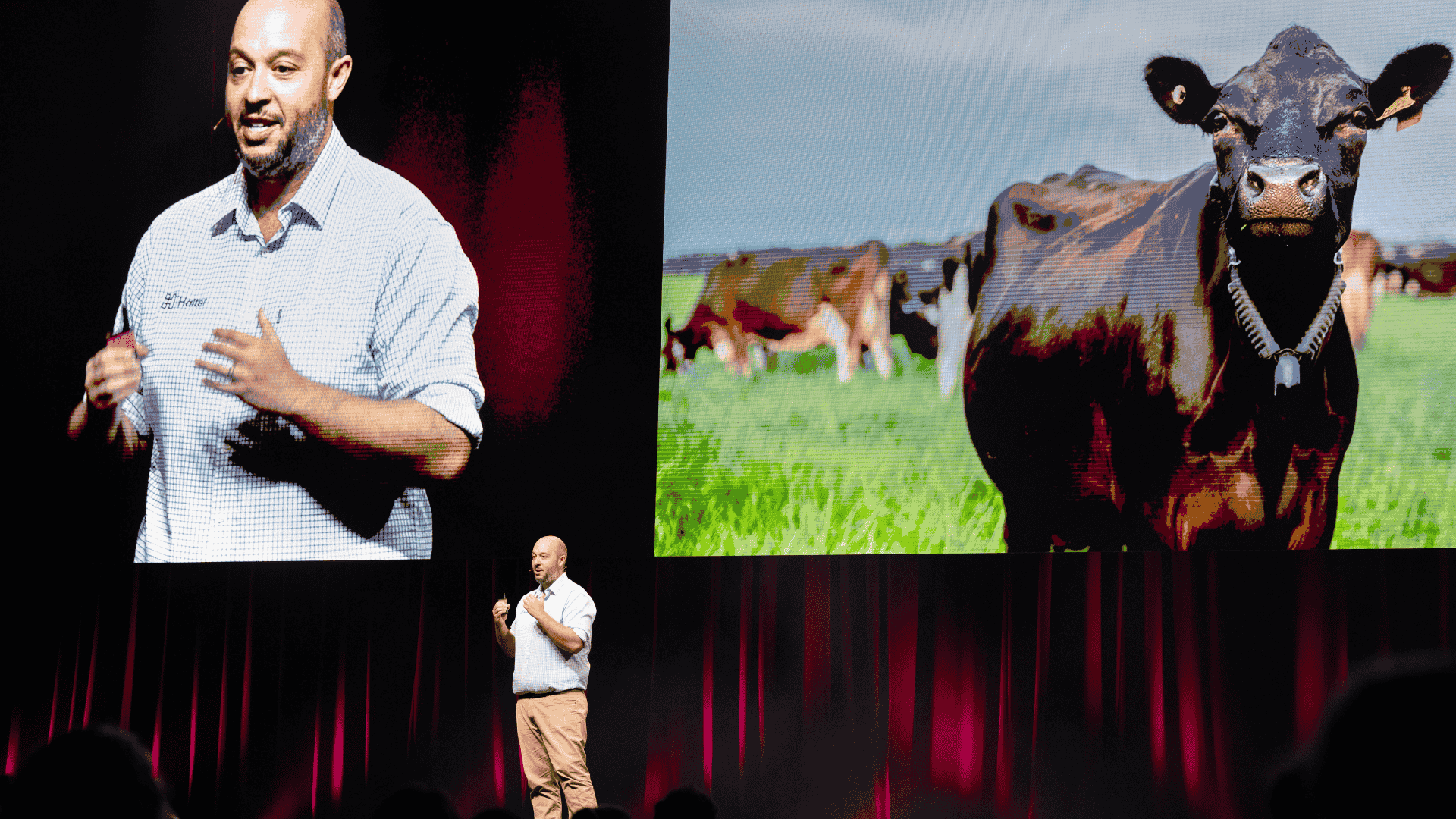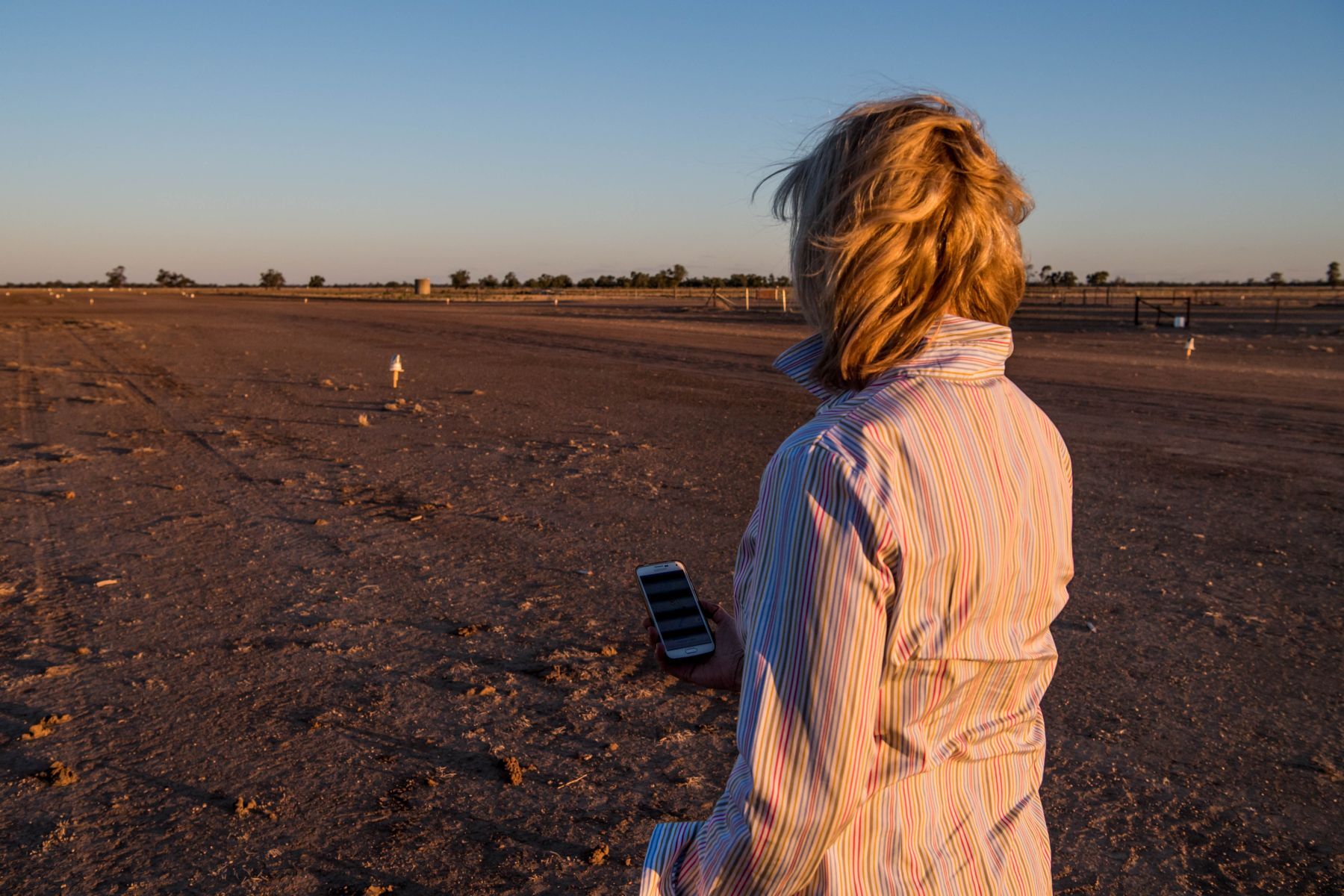Virtual fencing gets green light at ag tech event
Virtual fencing has been given the green light in Victoria, with Halter’s P5 electronic collar system on Wednesday becoming the first technology...
In a week where Farmsafe Australia is urging the sector to reflect on the lessons hidden inside every near miss, today’s message is clear: some of those lessons aren’t physical.
As National Farm Safety Week continues, Farmsafe is highlighting the link between burnout, situational distress, and the often- unseen mental health risks in farming.“In agriculture, we’re pretty good at pushing through,” Farmsafe Chair Felicity Richards said. “But what we’re not always good at is recognising when that push becomes too much, or when a string of near misses, losses, or long days becomes something bigger than just being tired.”
This year’s Safer Farms Report, sponsored by WFI, paints a stark picture.
While physical injuries are easy to tally, the mental health impact of long hours, compounding pressure, and traumatic incidents, including near misses, are much harder to capture. But they’re just as real.
“We often hear people say ‘I’m just a bit off,’ or ‘it’s been a big season’, but that can mask burnout, chronic stress, or situational distress,” Ms Richards said.
Situational distress refers to mental health strain that is triggered or worsened by difficult circumstances such as drought, injury, financial strain, or workplace trauma. On farms, it’s particularly acute during high-pressure periods like sowing, harvest, shearing, or packing seasons, when sleep, decision-making and communication are all under pressure.
And when something goes wrong, even if no one gets hurt, the emotional toll and anxiety of a near miss can linger.
“This year’s campaign is all about near misses,” Ms Richards said, “But we want to be clear: sharing those stories is powerful, but it has to be done safely.”
Farmsafe is encouraging individuals to take time before sharing a story to reflect on how it impacted them, and to consider the emotional safety of others, too.
“If it’s too soon or too raw, that’s OK,” Ms Richards said. “You can share in private, or not at all. Sometimes, writing it down just for yourself, or sharing it with a trusted team member or mental health professional, is just as meaningful.”
The campaign includes five key principles for safe storytelling:
1. Share when you’re ready – There’s no pressure to speak before you’ve had time to process.
2. Focus on the outcome – What changed as a result of the near miss? How did it help improve safety?
3. Avoid graphic details – Especially when talking with kids, new staff, or others who weren’t involved.
4. Acknowledge the emotion – It’s OK to say something was frightening, upsetting, or rattling.
5. Point to support – Whether it’s a peer, a hotline, or a local service, include a suggestion for where to go if someone needs help.
The campaign also urges farmers to recognise when stress has shifted from temporary to dangerous and to understand that mental health is not just about depression or diagnosed illness.
“Burnout doesn’t always look like lying in bed,” Ms Richards said. “It can look like snapping at your team, feeling overwhelmed by small tasks, or finding it hard to focus on jobs you normally handle without blinking.”
Other signs include:
• Trouble sleeping
• Increased reliance on alcohol or stimulants
• Constant fatigue, even after rest
• Feeling isolated, unmotivated, or numb
• Difficulty making decisions.
In farming, where the line between personal and professional is often blurred, these symptoms can be missed or brushed off as ‘just being busy.’
“But being busy and being unwell are not the same thing,” Ms Richards said. “You can’t afford to ignore the warning signs. On farms, your mental clarity keeps everyone safe including yourself.”
The good news is that awareness is growing. Across the country, many farming families are taking mental health seriously; setting boundaries, building in recovery time, and having more honest conversations.
As National Farm Safety Week continues, Farmsafe is reminding everyone in agriculture: You are your most important safety tool.
“Safety isn’t just about helmets and harnesses. It’s about emotional bandwidth. It’s about having the capacity to stop, assess, communicate and care. If your tank is empty, safety takes a hit.”
MENTAL HEALTH SUPPORT IS AVAILABLE:
Lifeline – 13 11 14
Rural Aid – 1300 327 624
Beyond Blue – 1300 22 4636
TIACS – 0488 846 988
Suicide Call Back Service – 1300 659 467
Ifarmwell – ifarmwell: Growing farmers’ wellbeing
or talk to a local GP or support worker.

Virtual fencing has been given the green light in Victoria, with Halter’s P5 electronic collar system on Wednesday becoming the first technology...
.png)
What if the real issue with “kids not stepping up” isn’t them at all?In this episode, Ben Law sits down again with high-performance advisor Chris...
.png)
As Victorians begin the long recovery following devastating bushfires which burnt more than 400,000 hectares, a pair of contract...
